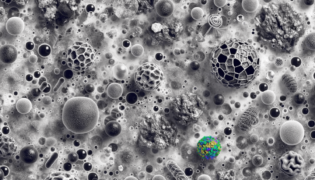No, Frankincense is not proven to remove skin tags effectively. For safe removal methods, consult a dermatologist for appropriate treatment options.
Scientific Support for Frankincense on Skin Tags
There is insufficient scientific evidence to support the claim that Frankincense can be used as a skin tags remover. Although it has certain anti-inflammatory and healing properties, no strong clinical studies link its use to the effective removal of skin tags.
Safe and Effective Skin Tags Removal Methods
For reliable skin tag removal, consulting a dermatologist is highly recommended. Medical professionals can provide suitable procedures, such as cryotherapy, electrocautery, or surgical excision, that ensure proper and safe skin tag removal.
Skincare Logix: Advice on Skin Tags
At Skincare Logix, the main focus is on providing helpful and accurate skin care advice. Relying on home remedies, such as using Frankincense for skin tags, is not suggested without proper research or consulting a dermatologist.
Introduction to Frankincense
Frankincense, derived from the resin of the Boswellia tree, is commonly known for its anti-inflammatory, immune-boosting, and stress-relieving properties. It is often used in natural skincare products and home remedies due to its potential skin health and healing benefits. However, using Frankincense for skin tag removal lacks scientific validation.
Why Are Frankincense Claims Misleading?
Many over-the-counter products and home remedies claim to remove skin tags, including some that contain Frankincense. However, these claims can be misleading since there is no strong scientific evidence supporting the efficacy of Frankincense as a skin tags remover. Using unverified remedies may lead to disappointment and, in some cases, adverse skin reactions.
Alternative Home Remedies for Skin Tags
As a blog dedicated to skincare, Skincare Logix advises caution when using home remedies for skin tag removal. It is crucial to research and consult healthcare professionals before trying any remedy. Some alternative home remedies for skin tags removal include tea tree oil, apple cider vinegar, or garlic. Although anecdotal evidence exists supporting these methods, their effectiveness and safety are not universally confirmed. It is important to perform a patch test and monitor for any skin irritation before proceeding with any home remedy.
Conclusion: Trust the Expert Advice
Skincare Logix emphasizes relying on expert and professional advice when it comes to skin care. Consulting a dermatologist for skin tag removal offers you the opportunity for safe, effective, and well-researched solutions. While Frankincense has various therapeutic properties, the claim that it effectively removes skin tags is unsupported by scientific evidence.Show
Frequently Asked Questions
Below are some common questions and answers related to Frankincense and skin tag removal, providing further clarity and assistance to our readers.
Can I use other essential oils instead of Frankincense to remove skin tags?
Some essential oils, like tea tree oil, are claimed to remove skin tags, but their effectiveness varies. It is essential to perform a patch test and consult a dermatologist before using any essential oil for skin tag removal.
Why should I consult a dermatologist for skin tag removal?
Consulting a dermatologist ensures you receive a safe and effective skin tag removal procedure. They can recommend appropriate treatments like cryotherapy, electrocautery, or surgical excision, specifically tailored to your skin’s needs.
What are the potential risks of using home remedies for skin tag removal?
Home remedies may cause skin irritation, inflammation, or infection if not used correctly or if they’re not suitable for your skin. It is best to consult a dermatologist before trying any home remedy for skin tag removal.
Are there any side effects of using Frankincense on the skin?
Frankincense is generally safe but can cause skin irritation, rash, or allergic reactions in some individuals. To avoid adverse effects, it is advisable to perform a patch test before applying it to a larger area or skin tags.
Can skin tags be harmful if not removed?
Most skin tags are harmless and non-cancerous. However, if a skin tag becomes painful, exhibits color or shape changes, or bleeds, consult a dermatologist to determine the best course of action.





















